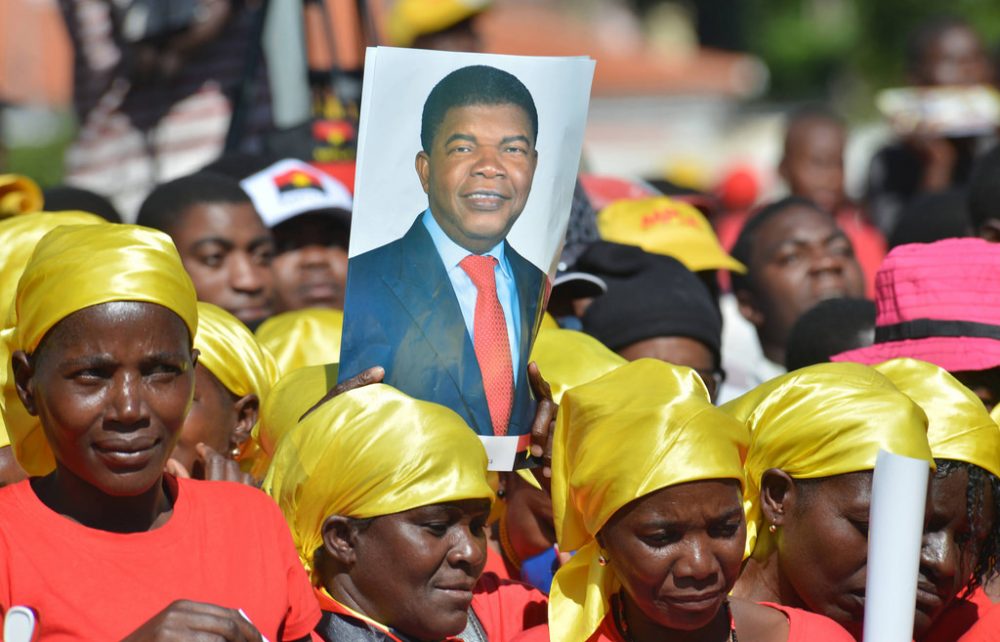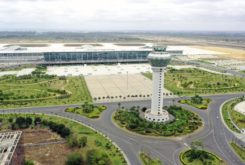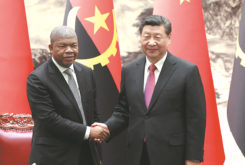After months of investigations into the acquisitions, made by members of the political and military elite over the last few years, of assets from the state or using state funds, Angola has finally kicked off a nationalisation process that is set to agitate political and business circles.
The warning had already been issued by President João Lourenço on 14 March, during the opening of the judicial year, when he stated that a report ordered by the government found nearly US$5 billion of public funds had been taken for the benefit of a small elite.
Then on 13 June, in the presence of members of the government and the country’s top magistrates and security officials, the National Asset Recovery Service of the Attorney General’s Office (PGR) made public a list of assets to be recovered, stating that they were acquired with “public funds, some in the process of privatisation and others financed and backed with sovereign guarantee of the state, without voluntary repayment of such public funds until the present date.”
Politically more sensitive is the case of the loans made by state-owned oil company Sonangol to two companies, Geni Novas Tecnologias and Lektron Capital, to acquire stakes in BESA, now known as Banco Económico.
Sonangol signed a contract with Geni, owned by General Leopoldino Fragoso do Nascimento (known as Dino), in local currency in an amount equivalent to US$53.28 million, of which Geni repaid less than half, around US$23.69 million, and has agreed to repay the outstanding amount under penalty of “arrest of the shareholdings,” according to the PGR.
Lektron Capital, a Chinese-owned company whose shareholders include General Hélder Vieira Dias Júnior (known as Kopelipa) and former Vice President Manuel Domingos Vicente, received US$125 million, also to buy shares of Banco Económico, which have now been “voluntarily surrendered to the to the Angolan state.”
All three men were among the most powerful members of the Dos Santos administration, a triumvirate that dominated Angola’s business sphere.
Several other cases remain subject to ongoing actions by the PGR. Grupo Suninvest SA, shareholder in Angomédica EP, has been served an injunction for “immediate delivery to the state of drug factories in the provinces of Luanda and Benguela.”
Suninvest is owned by Ismael Diogo da Silva, another figure closely connected to former President Dos Santos.
Biocom (Companhia de Bioenergia de Angola, Lda) received a sovereign guarantee by two national banks equivalent to US$210 million. “Since there is a liability to be regularised by Biocom,” the prosecutor explained, the triggering of the state guarantee “may involve the recovery of the property of the company” by the state.
They are also looking at the Cement Factory of Kwanza Sul SA (FCKS), acquired by Joaquim Duarte da Costa David (former minister of Geology, Mining and Industry) and Tambwe Mukaz, among others, with a loan from Sonangol worth over US$820.5 million. According to the PGR, until now “no repayments were made” on the loan.
“Taking into account the national interest and the fact that [FCKS] is in full operation, the state decided to negotiate a contract of debt settlement where its interests and the maintenance of jobs will be duly safeguarded,” the PGR added.
David and Mukaz, along with José Manuel Quintamba de Matos Cardoso, also feature in the case of three textile factories: Mahinajethu–Satec (Dondo), Alassola-Àfrica Têxtil (Benguela), and Nova Textang II (Luanda). Financed with loans from the Japan Bank for International Cooperation (JBIC) in excess of US$1 billion, all three factories have been seized by the state, which was already being charged with repayment.
The factories in Dondo and Benguela had also received a credit line of over US$35 million from BAI (Banco Angolano de Investimentos), on which the companies defaulted, leading the state to be charged as the sovereign guarantor.
The conclusion of concession contracts for the operation and management of the three units was authorised by presidential decree in 2018, but bidders did not present “certain conditions, precontractual requirements and assumptions,” leading the government to “reverse the process” and going ahead with “a precautionary measure of arrest” of the assets.
According to a 17 June statement from IGAPE (Instituto de Gestão de Activos e Participações do Estado), the privatisation and rehabilitation of the textile factories was irregular, and in the end, exceeded ten times the amounts originally envisaged.
The delivery of the textile factories to Alassola, Nova Textang II and Mahinajethu – companies that did not participate in an initial public tender – was preceded by the concession of the surface right of the land where they were established, which was authorized by a former director of the Ministry of Geology, Mining and Industry (IDIA), Benjamim Dombolo, who is currently a shareholder in the same three companies that owned the textile units.
According to IGAPE, Dombolo lacked capacity to sign the lease, and the process of transferring the land surface right was based on the manipulation of false payments to IDIA, which never occurred.
The IDIA, then headed by Joaquin David, a primary beneficiary of the scheme, organised the entire financing process.
Since the delivery of the three factories to private companies, capacity used has varied from 0 to 10 per cent.
The process of identifying assets acquired with public funding is set to continue and could include some of the country’s major companies, in retail (Kero, Candando), telecom (Unitel, Movicel), brewing, and more.
The process will also lead, in the medium-term, to the privatisation of companies that will be expropriated from their current owners – an extraordinary source of income for the state budget.
For President Lourenço, the measure is also a way to reduce or nullify the economic power of adversarial interest groups involved in corruption and, eventually, the ability to effect internal change.
The creation of legal conditions for the seizure of vast, high-value real estate assets belonging to Higino Carneiro is also the reason pointed out, in circles close to the former governor of Luanda, for him being investigated by the PGR.
After being heard by the National Directorate of Criminal Investigation and Penal Action (DNIAP), Carneiro was indicted for acts of mismanagement as provincial governor of Luanda (2016–2017), but parallel investigations are being carried out on misappropriation of public funds and other alleged irregularities committed by him while Construction minister.




